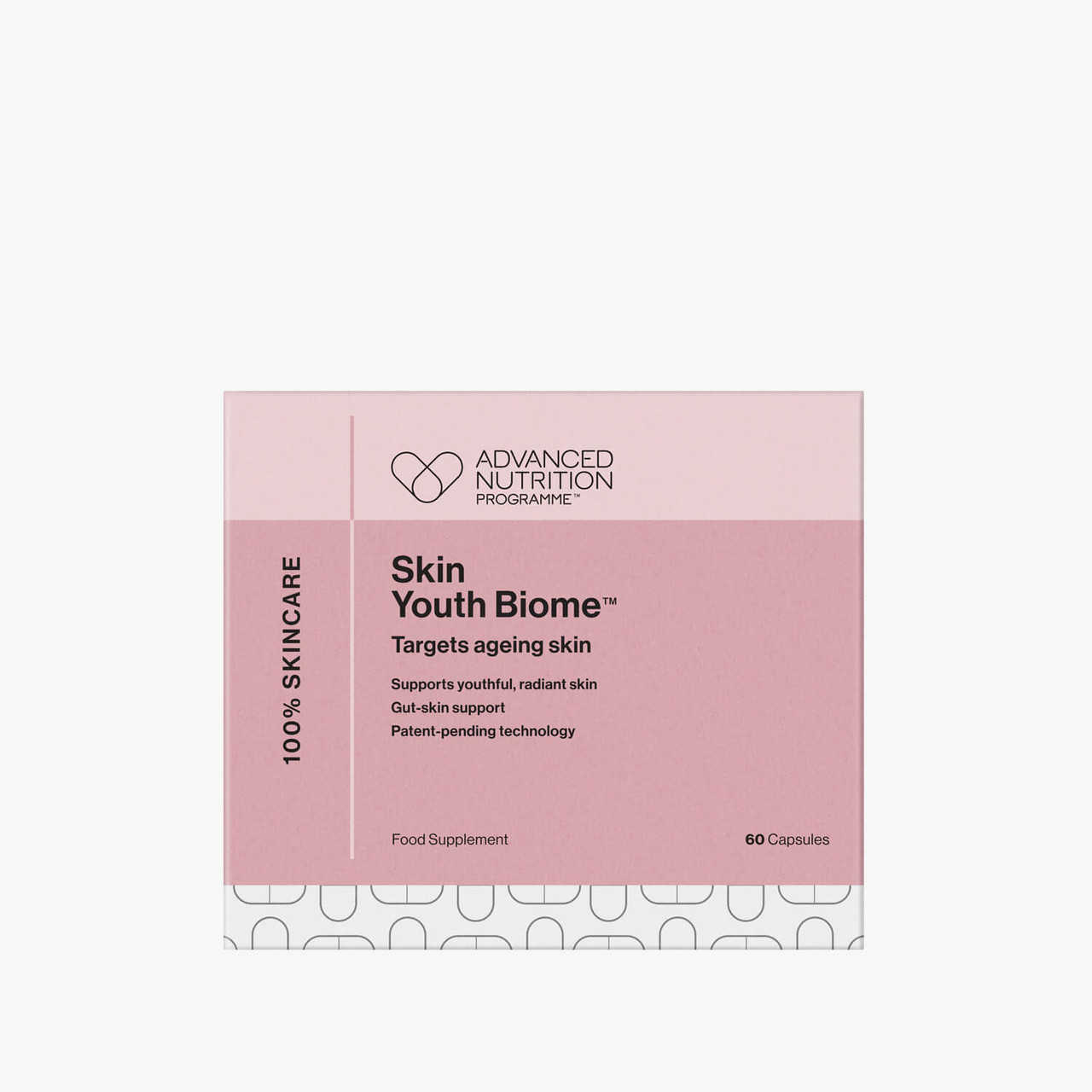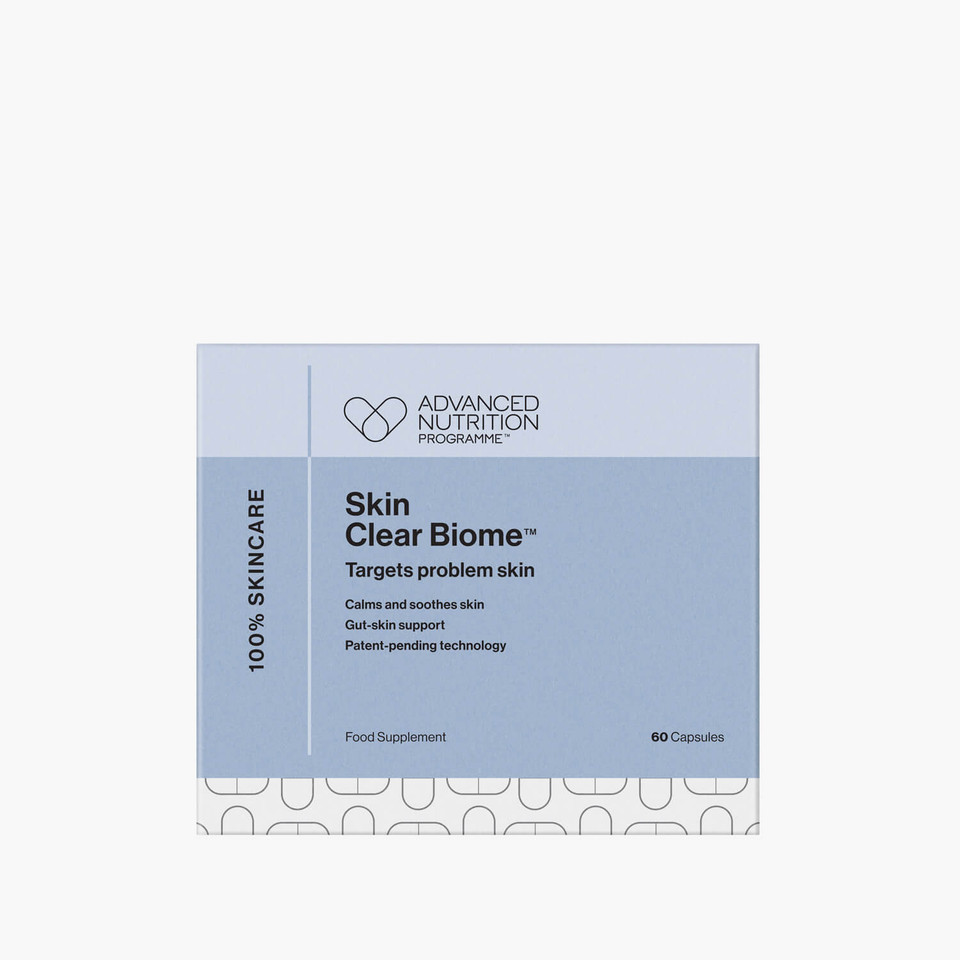Five Things that Impact Your Microbiome

We asked our skin health experts the 5 things that can impact your microbiome, plus the best ways to alleviate your symptoms and get your gut back on track.
Diet
If you indulge in rich and high-calorie foods which are often high in sugar, unhealthy fats, and processed ingredients. This shift in dietary habits can alter the composition of your gut microbiome.
Because an excess of sugar and processed foods can promote the growth of less desirable bacteria while reducing the diversity of beneficial ones. 1
We’d recommend switching out cocktails that are generally high in sugar to a glass of red wine instead – on average a standard cocktail can contain up to 10g of sugar vs red wine which on average can be around 1g.
Alcohol Consumption:
Alcohol consumption can disrupt the balance of your gut microbiome and lead to inflammation in the gut. 2 It can also affect the liver, which plays a role in processing toxins and maintaining overall gut health.
Our skin health experts recommend feeding your good bacteria with fermented drinks such as kombucha helping to maintain a healthy population of microorganisms in your gut.
Stress Levels:
Life can be stressful for many people due to work, family gatherings, or financial pressures. High stress levels can affect the composition of the microbiome and increase bad bacteria BUT increasing the levels of good bacteria can help reduce stress levels. 3,4
Make sure you include fermented foods alongside festive meals such as fermented cranberries and fermented pickles or take a good probiotic.
It’s also a good idea to take the time to do some yoga or get out and take a long walk to help reduce stress levels. Put in some boundaries – it’s okay to say no to an event or two and take the time to relax instead.
Disrupted Sleep Patterns:
Irregular sleep schedules, late nights, and disrupted sleep can have a negative impact on your microbiome3. A sleep study on healthy adults showed that just 2 days of restricted sleep shifted gut bacteria to a less beneficial profile.5
A well-regulated sleep pattern is essential for maintaining gut health so while there are going to be late nights over the festive season, make sure that in between you are getting in some early nights too!
Hydration and Fibre Intake:
Both water and fibre are essential for maintaining a healthy gut microbiome. Go big on Brussels sprouts – part of the brassica family along with cabbage, kale and broccoli, they’re packed full of fibre which provides just the right type of fuel for your gut bacteria. Half a cup provides just over 2 grams of fibre.
Include broths and soups during the day to stay hydrated. These warm, savoury options provide essential fluids and help us to stay hydrated.
At Advanced Nutrition Programme™, we believe the key to happy skin is a happy gut. Our two scientifically proven biomes target common skin concerns with billions of gut-friendly bacteria to balance your microbiome.
These next-generation skin supplements are formulated to nurture the close connection between a healthy gut and balanced skin.
Skin Youth Biome™
Synergising together microbiome technology of six skin-friendly bacteria, including two new compounds and vitamin C, this one-a-day capsule helps deliver youthful-looking, radiant and brighter skin.
Skin Clear Biome™
This award-winning supplement synergises four specific strains of bacteria and yeast selected by our nutrition and scientific experts for their research-backed impacts on the underlying causes of problem skin.
Sources:
1 Satokari, R. (2020). High intake of sugar and the balance between pro-and anti-inflammatory gut bacteria Nutrients, 12(5), 12–15. https://doi.org/10.3390/nu12051348
2 Bishehsari F, et al. Alcohol and Gut-Derived Inflammation. Alcohol Res. 2017;38(2):163-171. PMID: 28988571; PMCID: PMC5513683.
3 https://www.medicalnewstoday.com/articles/322636
4 Madison A, Kiecolt-Glaser JK. Stress, depression, diet, and the gut microbiota: human-bacteria interactions at the core of psychoneuroimmunology and nutrition. Curr OpinBehav Sci. 2019 Aug;28:105-110. doi: 10.1016/j.cobeha.2019.01.011. Epub 2019 Mar 25. PMID: 32395568; PMCID: PMC7213601.
5 Benedict, C., et al. (2016). Gut microbiota and glucometabolic alterations in response to recurrent partial sleep deprivation in normal-weight young individuals. Molecular Metabolism, 5(12), 1175–1186. https://doi.org/10.1016/j.molmet.2016.10.003


